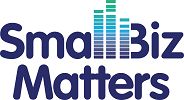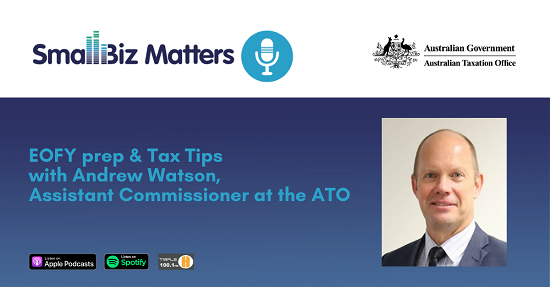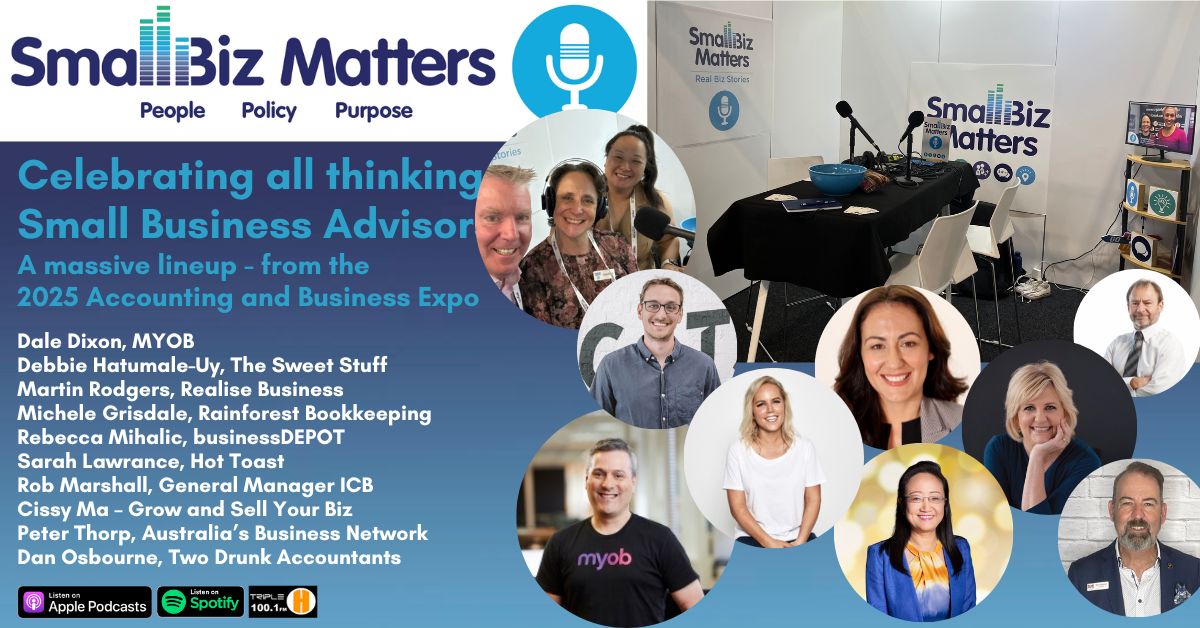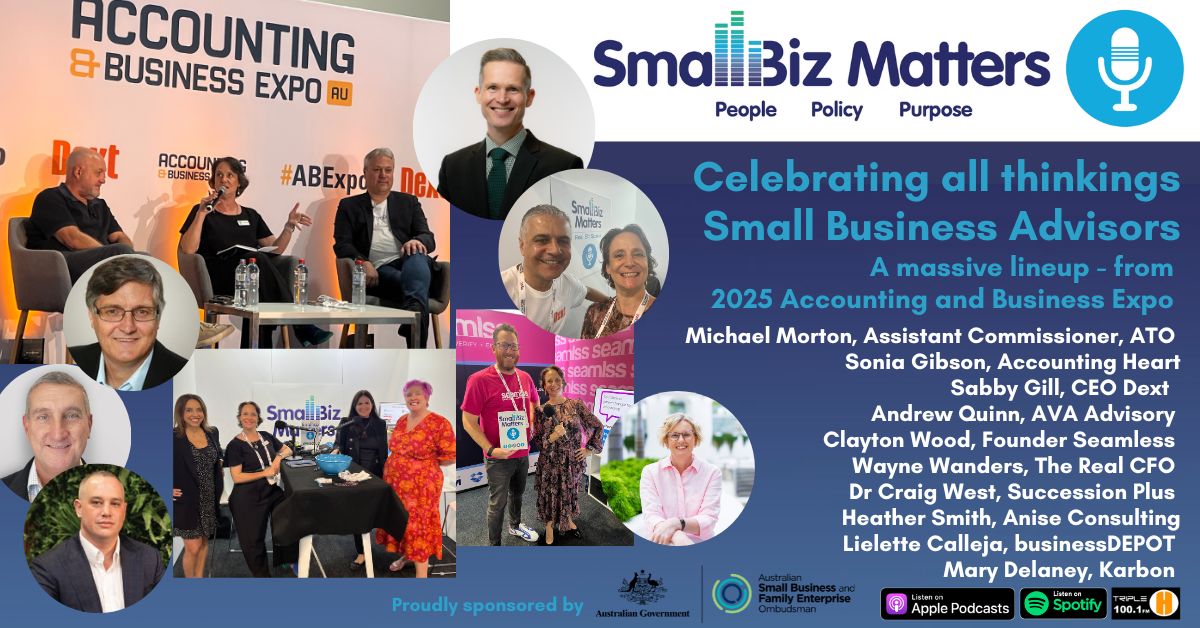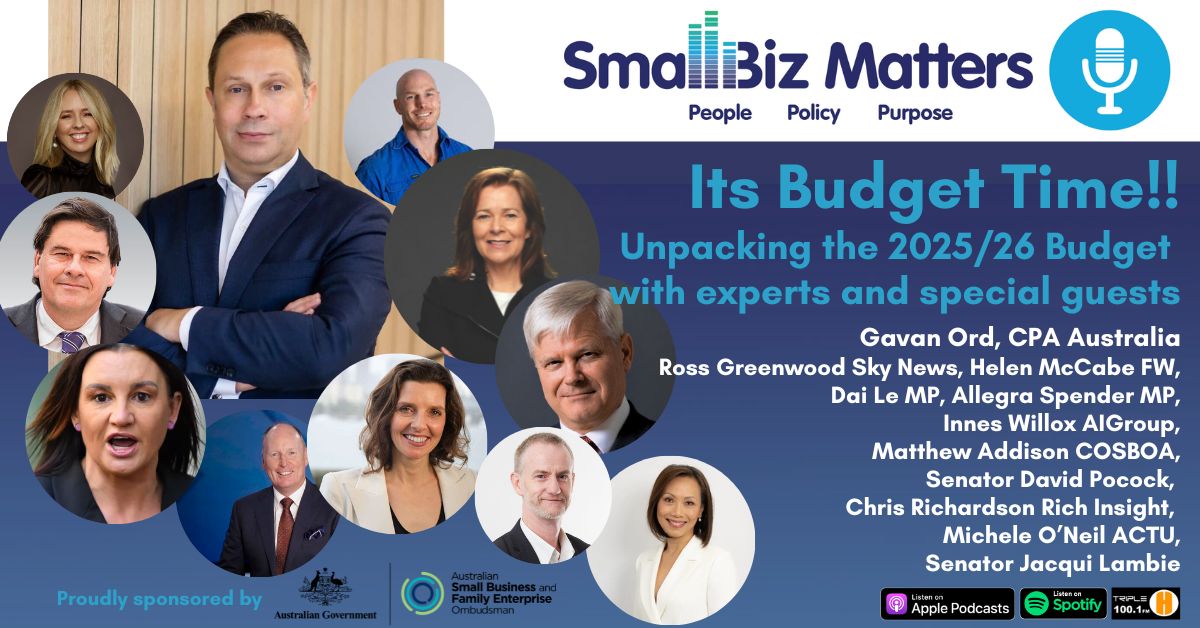Getting prepared for (possibly the weirdest) End of Financial Year
| Tuesday June 30Small Biz Matters – a half hour program each week where you can work ON your business rather than IN it.
with Alexi Boyd, broadcaster, advocate and small business owner.
Date: 30 June 2020
You may have been distracted by a couple of international crisis’ in the past few months but here we are again; end of financial year! Hopefully 2020 will keep moving this quickly so we can get back to some semblance of normal small business life but in the meantime your requirements haven’t changed as a small business.
Single Touch Payroll reporting, super obligations, BAS deadlines and wrapping up your end of financial year finances and still there, whether you’ve bounced back from this weird economy or not.
One positive aspect of experiencing a slow down is we can all focus a little more on your admin and bookkeeping and what the EOFY requirements are from the ATO.
Joining us today is Andrew Watson, the Assistant Commissioner in charge of Small Business Experience, Small Business, at the Australian Tax Office. He’s going to share with us what the ATO expects, supports and how they assist if you’re one of the many many businesses experiencing hardship.
Welcome back to the show Andrew.
Topics we’ll be covering:
- What should small businesses do to prepare for Tax time 2020?
- Record keeping and who’s responsible for this?
- Increase in digitising of document and record keeping - recording and reporting are getting faster
- Mention of e-invoicing
- How does e-commerce feed into this? Digitised businesses are more likely to keep on top of their obligations
- New developments in the business platform
- Typical errors we in EOFY processes inc - apportioning incorrectly business/private especially home office expenses
- How is this different due to covid.
- STP Finalisation - how is this different from the old payment summary for the first time
- Instant asset write-off timings - installed and ready to use rather than when it was ordered and paid for - beware of self assessment. The affect of the supply chain changes
- Give examples
- Shout out to bookkeepers & accountants for their help with bringing the legislation to small business
- What do small businesses need to know about the stimulus packages and EOFY?
- Coding the stimulus measures on your tax return - Jobkeeper / Cashflow boost credits / talk to your accountant about the state based payments
- What if a small business is impacted by multiple disasters (i.e. bushfires, COVID-19, and drought)?
- ATO relief and support thats available - deferments, PAYGI drop to NIL but bear in mind you can’t amend once the next quarter’s BAS is generated
- Switching from quarterly to monthly
- Debt relief
- If they’re not happy with the service then escalate, and of course
- So how do businesses access this assistance? Through the Business Portal? I’ve heard about myGovID changes. Do Businesses need to use myGOVID to access the Business Portal?
- Extension to availabilities of the ATO - giving 1800 number out, which is for tailored, specialised support and available indefinitely at the moment. Struggling with different issues like losing homes, losing records
- Changes to MyGovID system
To find out more go to their website: www.ato.gov.au
About our Speaker:
Andrew Watson is an Assistant Commissioner for the Australian Taxation Office in the Small Business line. He is currently responsible for understanding how small businesses engage with the tax and super systems, collaborating with small businesses, industry groups and government agencies to shape the client experience and drive improved digital services. His area also helps small businesses manage cash-flow and digital readiness so sustainable and viable businesses can thrive, and advocates for small businesses within the ATO.
